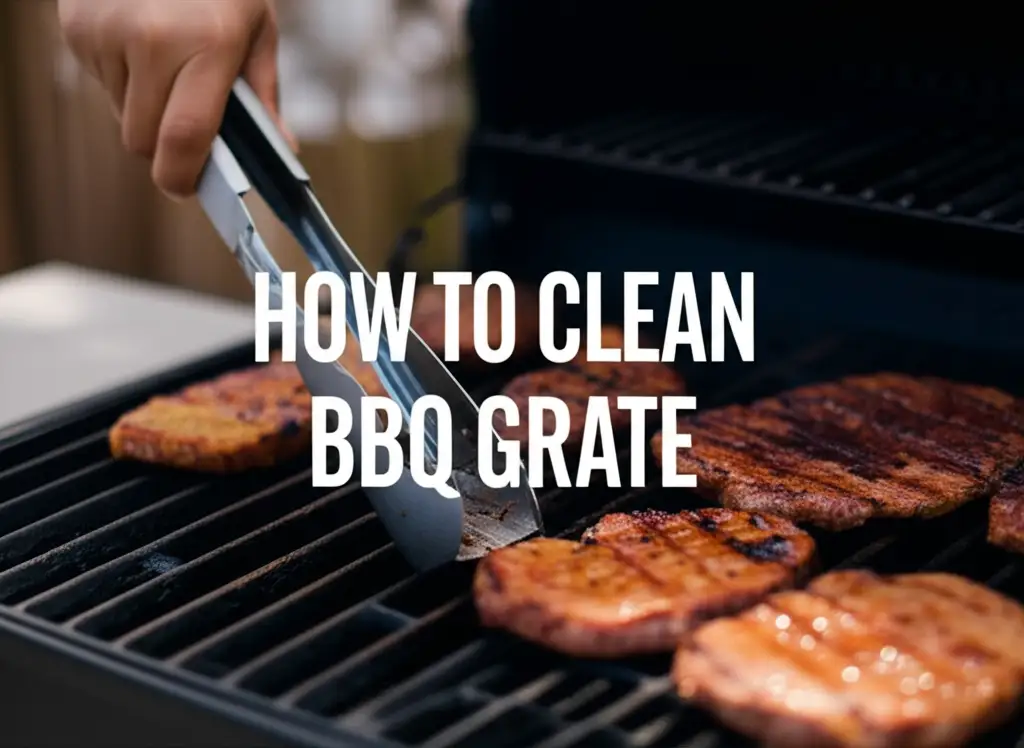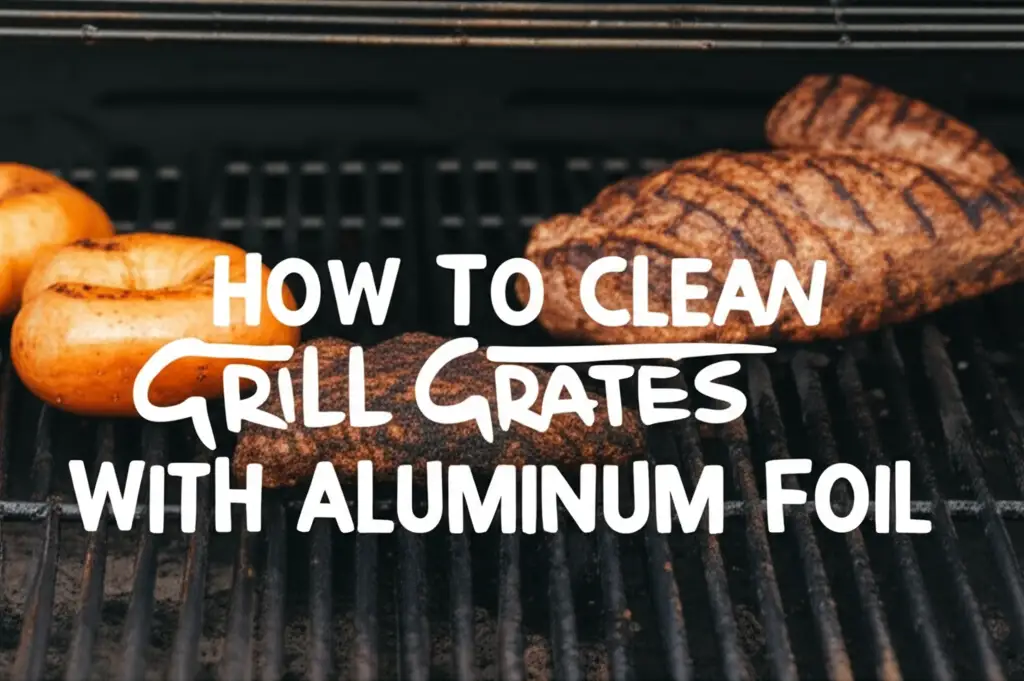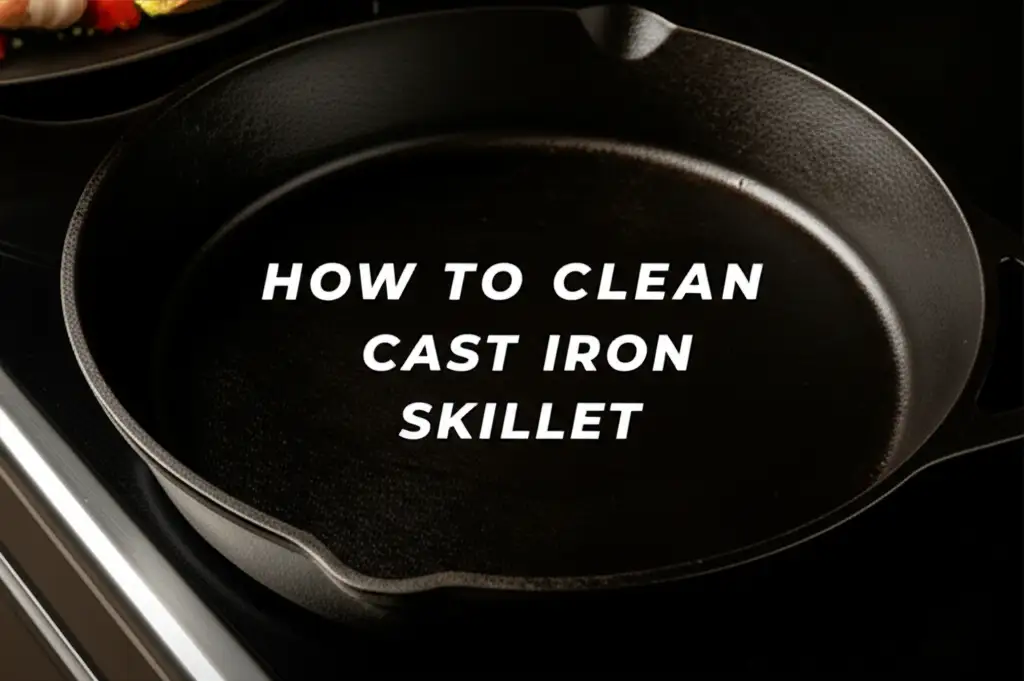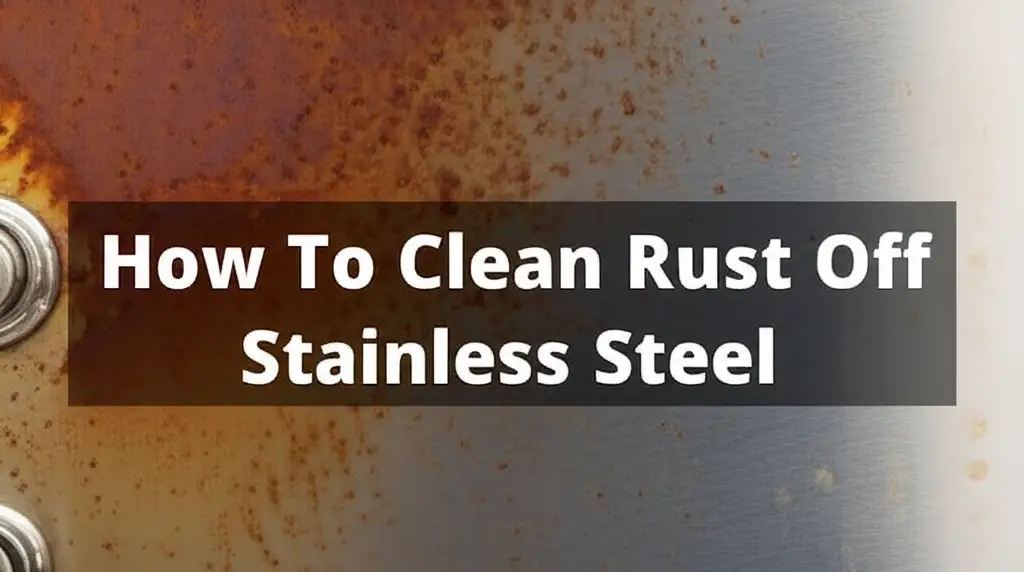· Home Cleaning · 14 min read
How To Clean Rusty Grill Grates
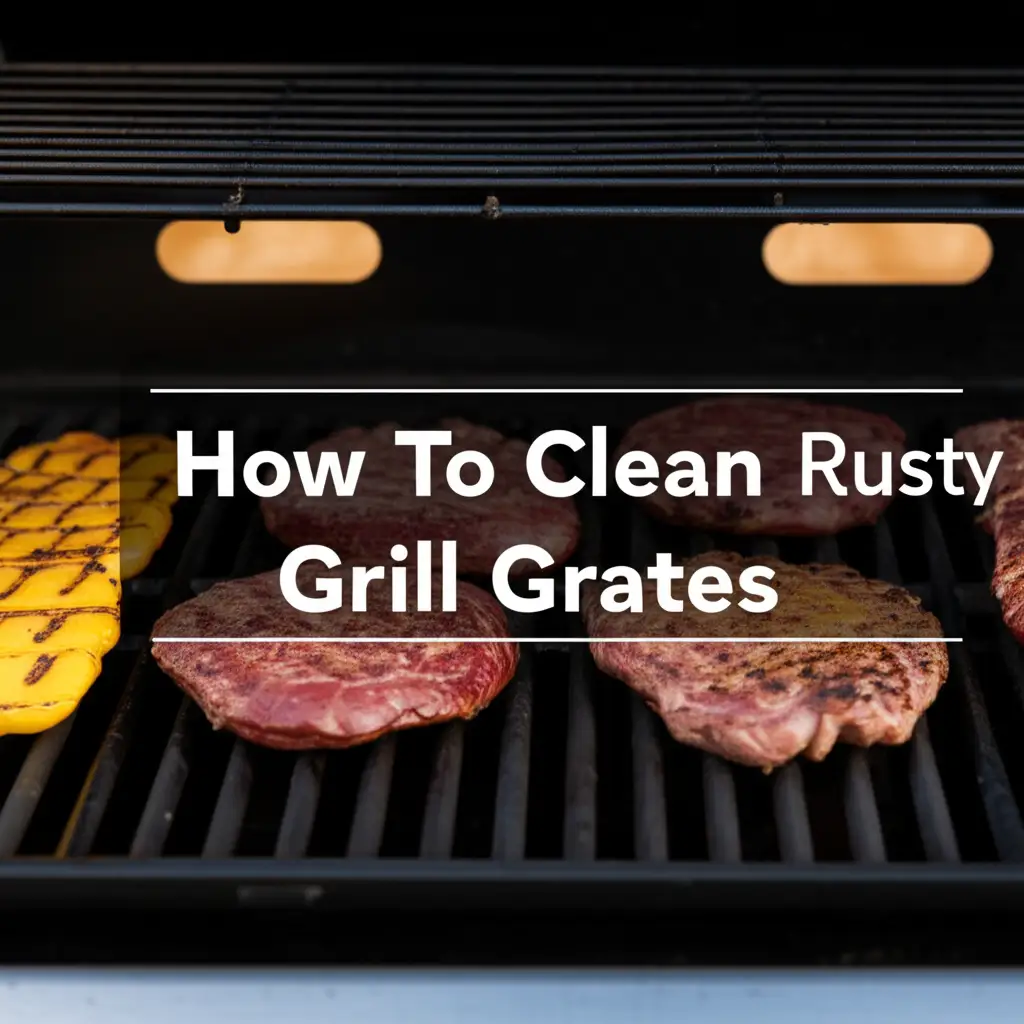
Revive Your Grill: How to Clean Rusty Grill Grates Effectively
Picture this: you plan a backyard barbecue. You lift the grill lid, eager to start cooking. But your grill grates look like they have seen better days. Rust covers the surface. This sight can be a real party pooper. Rusty grates are common. They happen to many grill owners. I know this feeling well.
Cleaning rusty grill grates restores your grill. It makes your cooking surface safe. It also improves food taste. Heavy rust can flake onto your food. It can also create an uneven cooking surface. This article will show you how to tackle rust. We will explore various cleaning methods. We will also cover essential prevention tips.
Takeaway:
- Rust forms on grill grates from moisture and air.
- Clean rusty grates with natural methods like vinegar, baking soda, or onion.
- Use chemical rust removers for tough rust, following safety rules.
- Specific cleaning steps apply for cast iron and stainless steel grates.
- Prevent rust with proper cleaning, seasoning, and storage.
To clean rusty grill grates, use a stiff wire brush, soap, and water for light rust. For heavy rust, apply a paste of baking soda and vinegar or a commercial rust remover. Allow it to sit, then scrub thoroughly. Rinse well and dry the grates completely.
Understanding Rust and Its Impact on Grill Grates
Rust forms when iron reacts with oxygen and water. This chemical process is called oxidation. Most grill grates contain iron. Cast iron grates are especially prone to rust. Stainless steel grates also can rust. However, they are more resistant.
Rust on grill grates is not just an eyesore. It also affects your health. Rust flakes can stick to your food. Ingesting small amounts of rust is generally not harmful. Large amounts, however, can cause stomach upset. This is why cleaning rusty grill grates is important.
Rust also impacts grill performance. A rusty surface cooks food unevenly. It makes food stick more often. This creates a messy cooking experience. It also makes cleaning harder later. Regular maintenance prevents these problems.
Different grate materials rust differently. Cast iron requires specific care. It needs seasoning to form a protective layer. Stainless steel needs less maintenance. But it still benefits from regular cleaning and proper storage. I always check my grates for rust before cooking. This helps me decide the best cleaning approach.
Essential Tools and Safety First
Before you start cleaning your rusty grill grates, gather the right tools. Having everything ready saves time. It also makes the job easier. You will need a stiff wire brush. You might also need scrub pads. For tough jobs, steel wool works well.
Safety is paramount when cleaning. Always wear heavy-duty gloves. These protect your hands from rust and cleaning agents. Safety glasses protect your eyes. Some cleaning methods can cause splashing. Ensure good ventilation, especially with chemical cleaners. Work outdoors if possible.
Consider the type of brush you use. A metal wire brush works on many grates. For cast iron, nylon brushes or scrub pads are gentler. These prevent scratching the seasoning layer. For very delicate surfaces, a non-abrasive scrubber is best. Choosing the right tool prevents damage to your grates.
Always read labels on any cleaning products. Follow their instructions carefully. Some chemicals require specific handling. I always make sure my work area is clear. This prevents accidents during cleaning.
Natural and Eco-Friendly Methods to Clean Rusty Grill Grates
Many people prefer natural cleaning methods. These options use common household items. They are often safer for you and the environment. They can be very effective for light to moderate rust. I find these methods easy to use.
Vinegar and Baking Soda Power
Vinegar and baking soda create a powerful cleaning reaction. The acid in vinegar helps dissolve rust. Baking soda provides an abrasive scrub. This combination lifts rust away. It is also non-toxic.
First, mix equal parts white vinegar and baking soda. Form a thick paste. Apply this paste generously to the rusty areas. Let it sit for at least 30 minutes. For heavy rust, leave it overnight. The longer it sits, the more it works. After soaking, scrub the grates with a wire brush. The rust will come off. Rinse the grates thoroughly with water. Make sure no residue remains. This method works well for various cleaning tasks, not just grills. For more vinegar cleaning tips, see our guide on how to clean shower with vinegar. You might also find other uses for vinegar in cleaning like how to clean mold with vinegar.
Potato and Salt Technique
This method sounds unusual. However, it is surprisingly effective for light rust. The oxalic acid in potatoes helps break down rust. Salt acts as an abrasive. It is a simple and cheap solution.
Cut a potato in half. Dip the cut side into a bowl of coarse salt. Use sea salt or kosher salt. Place the cut, salted potato directly onto the rusty grate. Rub it back and forth. The salt and potato juice work together. They lift off surface rust. Repeat with a fresh potato half if needed. Afterward, rinse the grates. Then, dry them completely.
Onion Method for Light Rust
An onion can also help clean grill grates. This method is often used for light, fresh rust. The natural acids in the onion break down grime. It also adds a nice touch for seasoning the grates.
Heat your grill to a high temperature. Let it burn off any food residue. This process is called pyrolysis. Turn off the heat. Cut a large onion in half. Skewer the onion half with a grilling fork. Rub the cut side of the onion firmly over the rusty grates. The heat helps release the onion’s juices. These juices loosen the rust and grease. You can learn more about this technique in our article on how to clean grill with onion.
Aluminum Foil Scrub
Aluminum foil can act as a gentle abrasive. It is useful when you do not have a grill brush. It is also great for more delicate grates. This method avoids scratching surfaces.
Crumple a piece of heavy-duty aluminum foil into a ball. Make it about the size of a baseball. Heat your grill to a high temperature. Turn off the heat. Use tongs to hold the foil ball. Scrub the rusty grill grates vigorously with the foil. The foil will scrape off the rust. It conforms to the shape of the grates. This makes it effective. Rinse off any remaining debris. This technique is detailed in our guide on how to clean grill grates with aluminum foil.
Sometimes, a brush is not ideal for your grill. If you prefer to clean your grill without a brush, other effective methods exist. You can explore our article on how to clean grill without brush for more options.
Chemical Rust Removers for Stubborn Grime
For very heavy or deeply ingrained rust, natural methods might not be enough. Chemical rust removers offer a stronger solution. These products contain stronger acids or chelating agents. They dissolve rust more aggressively. Always use these with extreme caution.
Types of chemical rust removers vary. Some contain phosphoric acid. This acid converts rust into a black, stable compound. Others use oxalic acid or stronger mineral acids. Read the product label carefully. Understand its chemical composition. This helps you apply it safely.
Application instructions are crucial. Apply the cleaner directly to the rusty areas. Use a brush or sprayer as recommended. Allow the product to sit for the specified time. This can range from minutes to hours. Do not let it dry on the grates. Keep the area well-ventilated. Wear proper personal protective equipment. This includes gloves and eye protection.
Rinsing thoroughly is absolutely vital after using chemicals. Any residue left on the grates can be harmful. Rinse the grates multiple times with clean water. You can even use a hose for thorough rinsing. Then, dry the grates completely. You must prevent new rust from forming. Seasoning is important after using chemical removers. Chemicals strip away any protective layers.
When choosing between chemicals and natural methods, consider the severity of the rust. For light surface rust, natural methods are safer and often sufficient. For thick, flaky rust that resists natural efforts, chemicals may be necessary. Always prioritize safety first.
Deep Cleaning Specific Grill Grate Materials
Different grill grate materials require specific cleaning approaches. Applying the wrong method can damage your grates. It can also reduce their lifespan. Knowing your grate material is the first step.
Cleaning Rusty Cast Iron Grill Grates
Cast iron grates are durable. However, they are highly susceptible to rust. Proper care involves more than just cleaning. It also requires seasoning. Seasoning creates a non-stick surface. It also protects against rust.
To clean rusty cast iron grates, start by scraping off loose rust. Use a plastic scraper or a stiff nylon brush. Avoid metal wire brushes if possible. They can scratch the seasoning. If the rust is severe, you might need to strip the old seasoning. You can do this by heating the grates in a self-cleaning oven cycle. Alternatively, soak them in a strong lye solution (with extreme caution). After rust removal, wash the grates with hot, soapy water. Use a mild dish soap. Rinse them thoroughly. Dry them immediately and completely. Then, re-season them with cooking oil. Wipe a thin layer of oil all over the grates. Bake them in an oven at 350-400°F (175-200°C) for an hour. Repeat this several times for a strong seasoning. For more detailed instructions, refer to our article on how to clean cast iron grill grates.
Restoring Rusty Stainless Steel Grates
Stainless steel grates are more rust-resistant. But they can still develop rust, especially if neglected. They require a different cleaning approach than cast iron. Harsh abrasives can scratch stainless steel.
For light rust on stainless steel, a paste of baking soda and water works well. Apply the paste and let it sit. Then, scrub with a nylon brush or scrub pad. For stubborn rust, a dedicated stainless steel cleaner is effective. Apply it with a soft cloth. Always scrub in the direction of the grain of the stainless steel. This prevents visible scratches. Rinse thoroughly with water. Then, dry the grates immediately. Stainless steel does not need seasoning. However, a light coat of cooking oil can add a protective layer.
Porcelain-Coated Grates and Rust
Porcelain-coated grates are smooth. They are very easy to clean. The porcelain coating prevents rust. However, if the coating chips, rust can form underneath. These grates need gentle handling.
Never use metal brushes or abrasive cleaners on porcelain. These can scratch or chip the coating. If you see rust, it means the porcelain is damaged. For cleaning, use a soft cloth or sponge. Warm, soapy water is usually enough for most grime. For rust spots, try a gentle paste of baking soda and water. Apply it with a soft cloth. Do not scrub hard. Rinse completely. If the porcelain is heavily chipped and rusted, replacement might be the best option. Further damage to the coating exposes more metal to rust.
Post-Cleaning Care and Rust Prevention
Cleaning your rusty grill grates is only half the battle. Preventing rust from returning is just as important. A few simple habits can keep your grates rust-free. I always make sure to follow these steps.
Seasoning Your Grill Grates
Seasoning creates a protective barrier on your grates. This is especially important for cast iron. It also helps with stainless steel. Seasoning involves applying a thin layer of cooking oil. Then, you heat the grates. This bakes the oil into the metal. The oil forms a polymerization layer. This layer repels moisture. It prevents rust.
After every deep clean, season your grates. Apply a thin, even coat of high-heat cooking oil. Vegetable oil, canola oil, or flaxseed oil work well. Heat your grill to a moderate temperature. Let the oil bake onto the grates for about 30 minutes. Turn off the grill. Let the grates cool naturally. Repeat this process a few times for a strong seasoning. This makes your grates non-stick. It also adds a layer of protection.
Proper Storage and Covering
Moisture is the primary enemy of grill grates. Storing your grill properly protects it. Always keep your grill covered when not in use. Use a durable, waterproof grill cover. This shields the grill from rain, snow, and humidity. Even if your grill is on a covered patio, a cover adds extra protection.
If you store your grill in a shed or garage for the winter, remove the grates. Clean them thoroughly. Season them well. Wrap them in newspaper or old towels. Store them in a dry place. This prevents moisture from reaching them. This extra step during off-season storage pays off. It ensures your grates are ready for the next grilling season.
Regular Maintenance After Each Use
Consistent, quick maintenance prevents rust buildup. Do not wait for rust to appear. After each grilling session, clean your grates while they are still warm. Heat the grill to high. This burns off food residue. Use a grill brush to scrape off leftover food particles. A warm grate cleans easier.
After cleaning, apply a very thin layer of cooking oil to the grates. Use a paper towel or cloth. This small step creates a barrier. It protects the grates until the next use. This quick routine takes only a few minutes. It extends the life of your grill grates significantly. It also keeps them ready for spontaneous barbecues.
When to Replace Rusty Grill Grates
Sometimes, cleaning is not enough. Severe rust can compromise the integrity of your grill grates. Knowing when to replace them is important. It ensures safety and good cooking.
Signs that grates are beyond repair include:
- Heavy Flaking: If rust flakes off easily and in large pieces, the grates are too far gone. This rust can end up in your food.
- Deep Pitting: Rust eats away at the metal. This creates deep pits and holes. These pits weaken the grate structure. They also create uneven cooking surfaces.
- Structural Damage: If the grates feel flimsy or bend easily, they are likely unsafe. This can cause collapse during cooking.
Safety concerns are paramount. Heavily rusted grates can pose a health risk. Ingesting too much rust is not good for you. Rust also affects heat distribution. This leads to poorly cooked food. It can even lead to flare-ups.
Consider the cost-effectiveness of cleaning versus replacing. If you spend hours on deep cleaning, it might not be worth it. New grates can last many years with proper care. Calculate the time and money spent on cleaners. Compare it to the cost of new grates. For very old or heavily damaged grates, replacement is often the smarter choice. I have replaced grates before. It felt like getting a new grill.
FAQ Section
Q1: Is it safe to cook on rusty grill grates?
Cooking on lightly rusted grill grates is generally considered safe. However, heavy rust can flake off onto food. Ingesting large amounts of rust can cause stomach upset. It is always best to clean grates thoroughly. This ensures both safety and food quality.
Q2: How often should I clean my grill grates to prevent rust?
Clean your grill grates after every use. Scrape off food residue while the grates are still warm. Apply a thin layer of cooking oil after cleaning. This regular maintenance prevents rust buildup. It keeps your grates in good condition.
Q3: Can I put rusty grill grates in the dishwasher?
Most grill grates should not go into a dishwasher. Dishwasher detergents are harsh. They can strip seasoning from cast iron grates. They can also damage porcelain coatings. This leaves grates more vulnerable to rust. Always hand wash grill grates.
Q4: What is the best oil for seasoning grill grates?
High smoke point oils are best for seasoning grill grates. Vegetable oil, canola oil, and flaxseed oil are good choices. Avoid olive oil, as it has a low smoke point. Apply a thin, even layer. This creates a durable, protective coating.
Q5: Does leaving grates dirty prevent rust?
No, leaving grates dirty does not prevent rust. Food particles and grease can attract moisture. This moisture accelerates rust formation. Always clean grates after use. Proper cleaning and drying are essential for rust prevention.
Q6: Can Coke really remove rust from grill grates?
Yes, Coca-Cola can help remove light rust. The phosphoric acid in Coke dissolves rust. Soak the rusty grates in Coke overnight. Then, scrub with a brush. Rinse thoroughly afterwards. This method is effective for minor rust problems.
Conclusion
Tackling rusty grill grates might seem like a big job. But with the right methods, it is very manageable. We covered understanding rust, gathering tools, and using natural remedies. We also discussed chemical options and specific material care. Remember, prevention is key. Regular cleaning, proper seasoning, and smart storage keep rust away.
Your grill grates are an important part of your outdoor cooking experience. Keeping them clean and rust-free ensures delicious, safe meals for years to come. Do not let rust stop your barbecue plans. Take action today. Clean your grill grates. Enjoy your next cookout with confidence.
- rusty grill
- grill cleaning
- rust removal
- grill maintenance
- BBQ cleaning
- outdoor cooking
- cast iron care
- stainless steel cleaning

